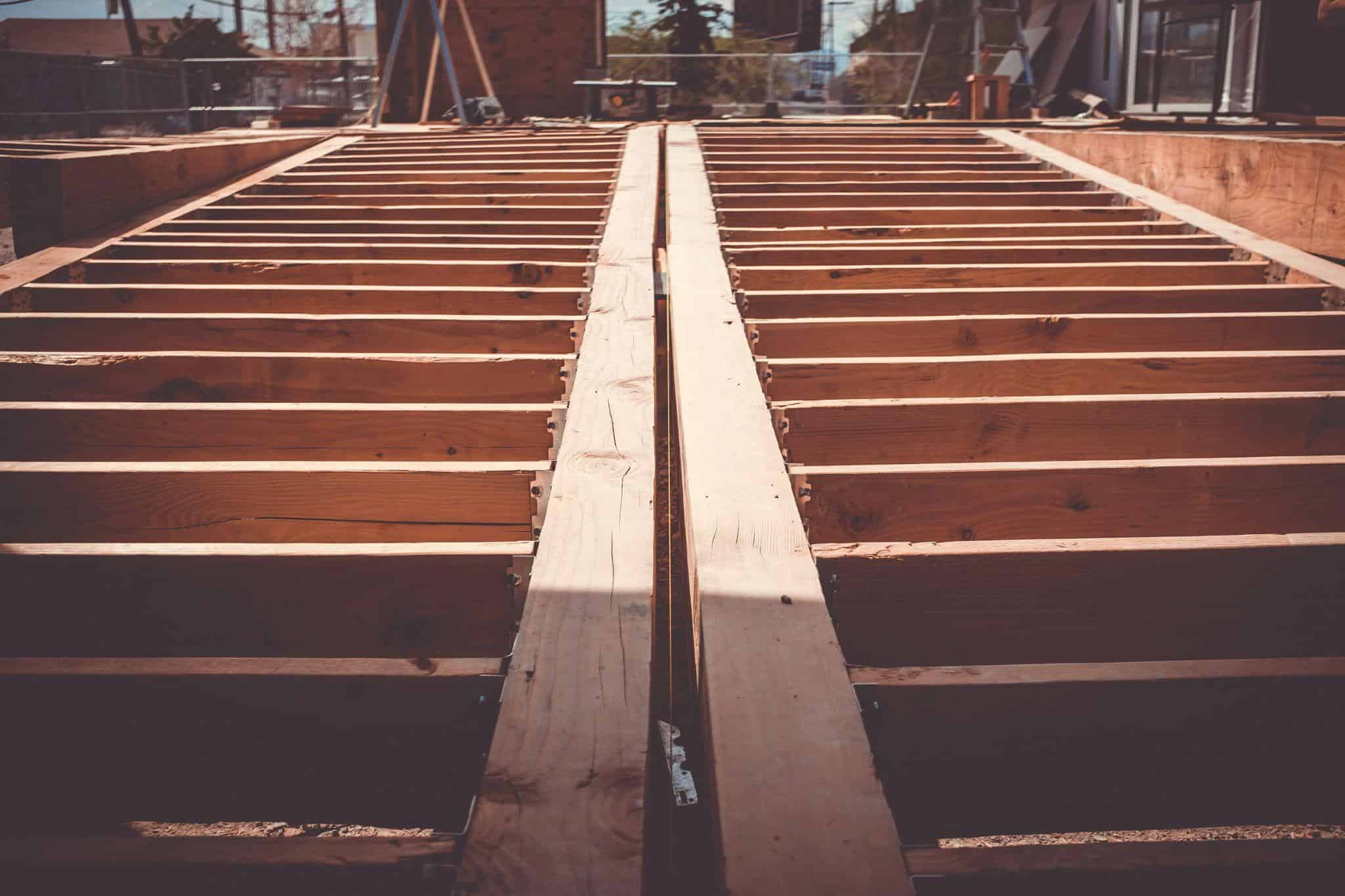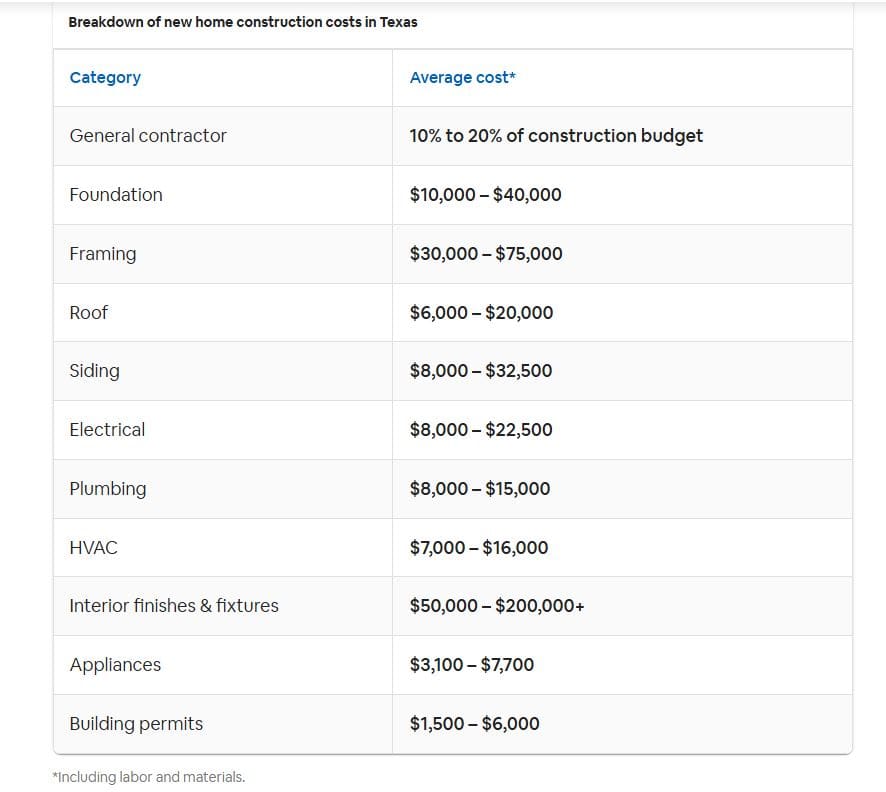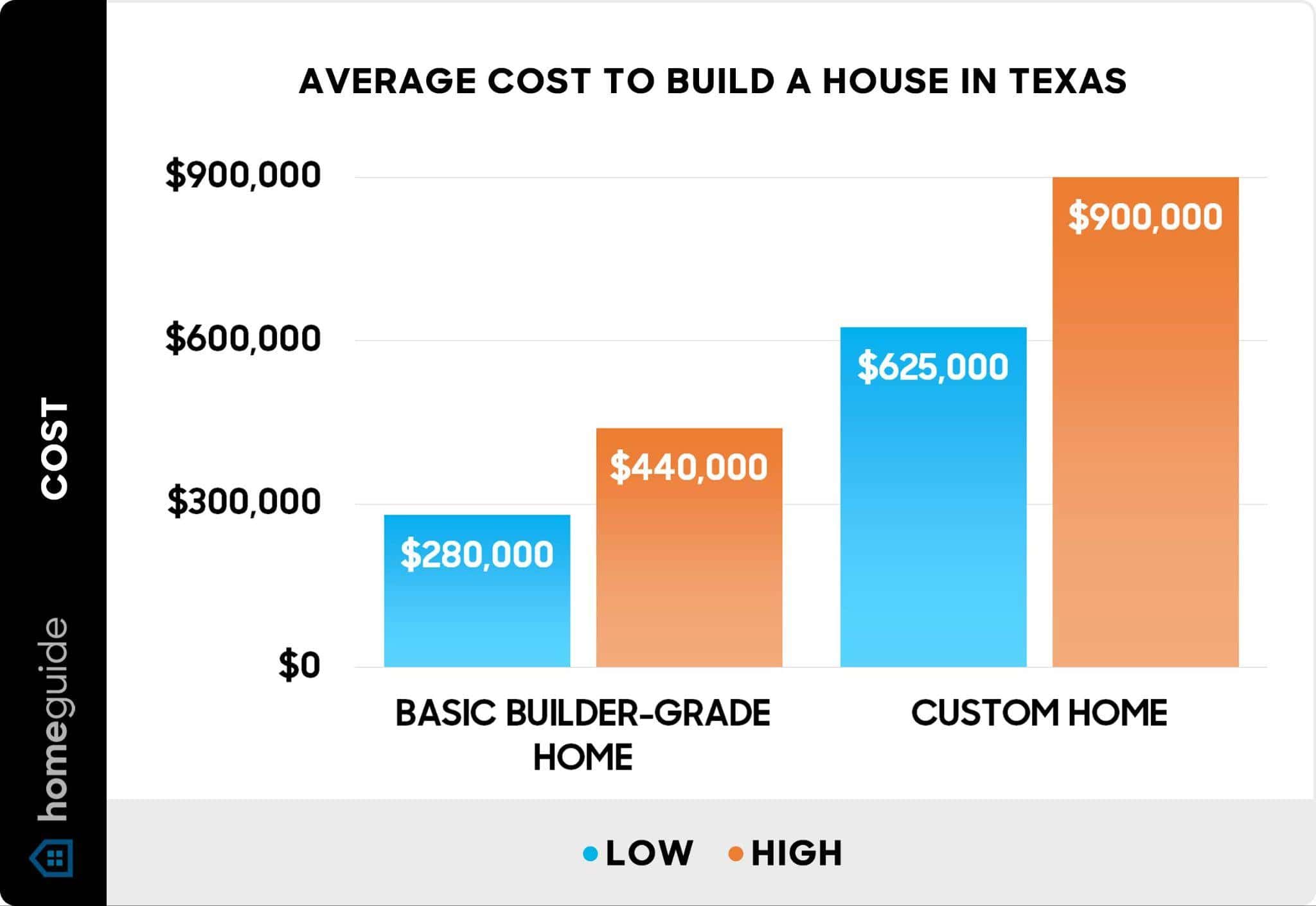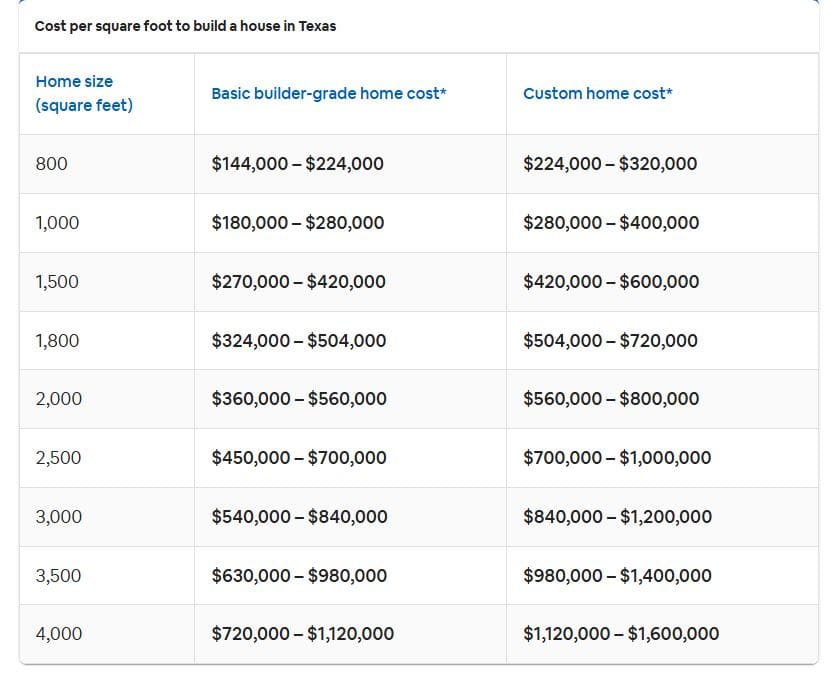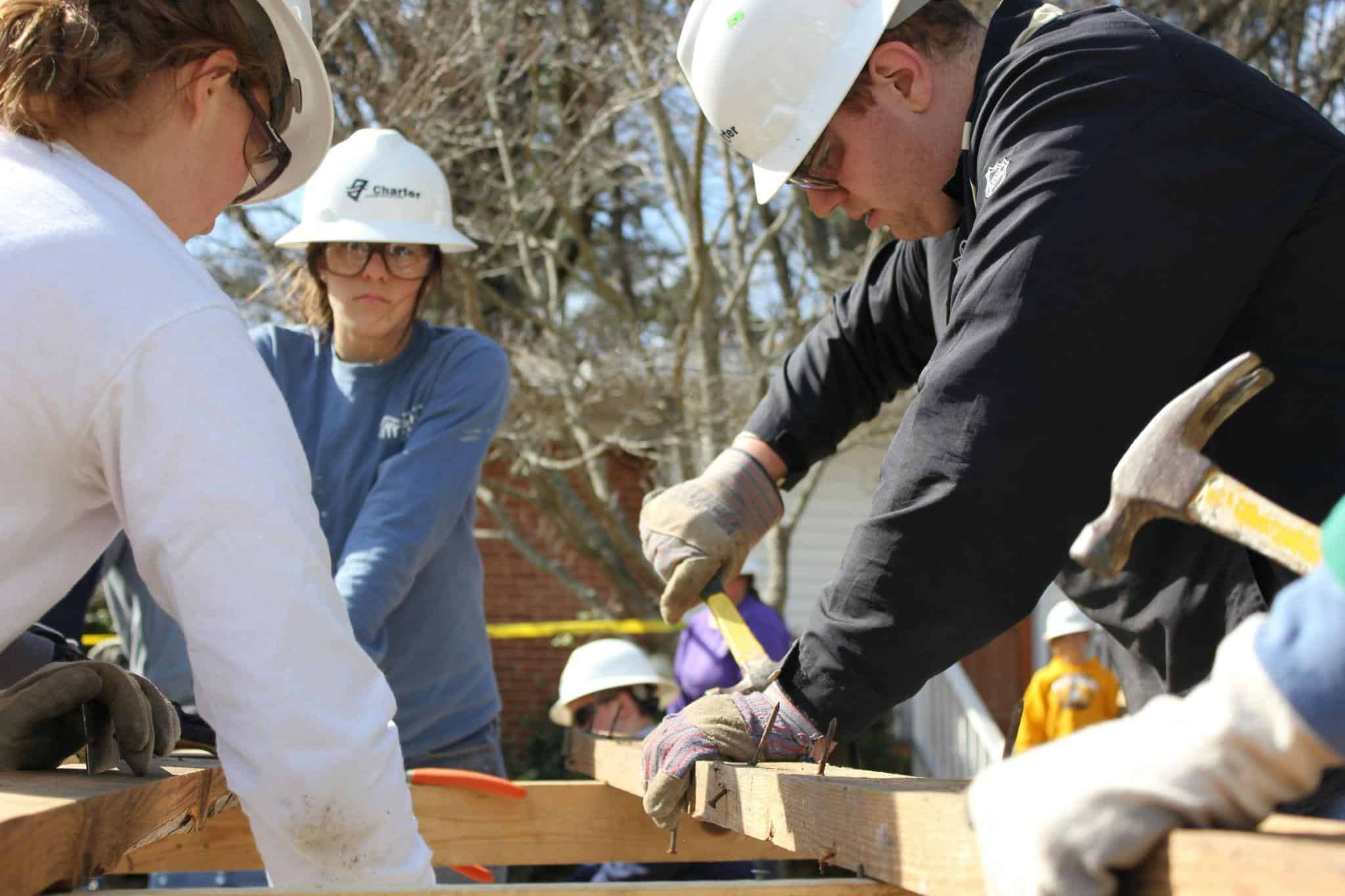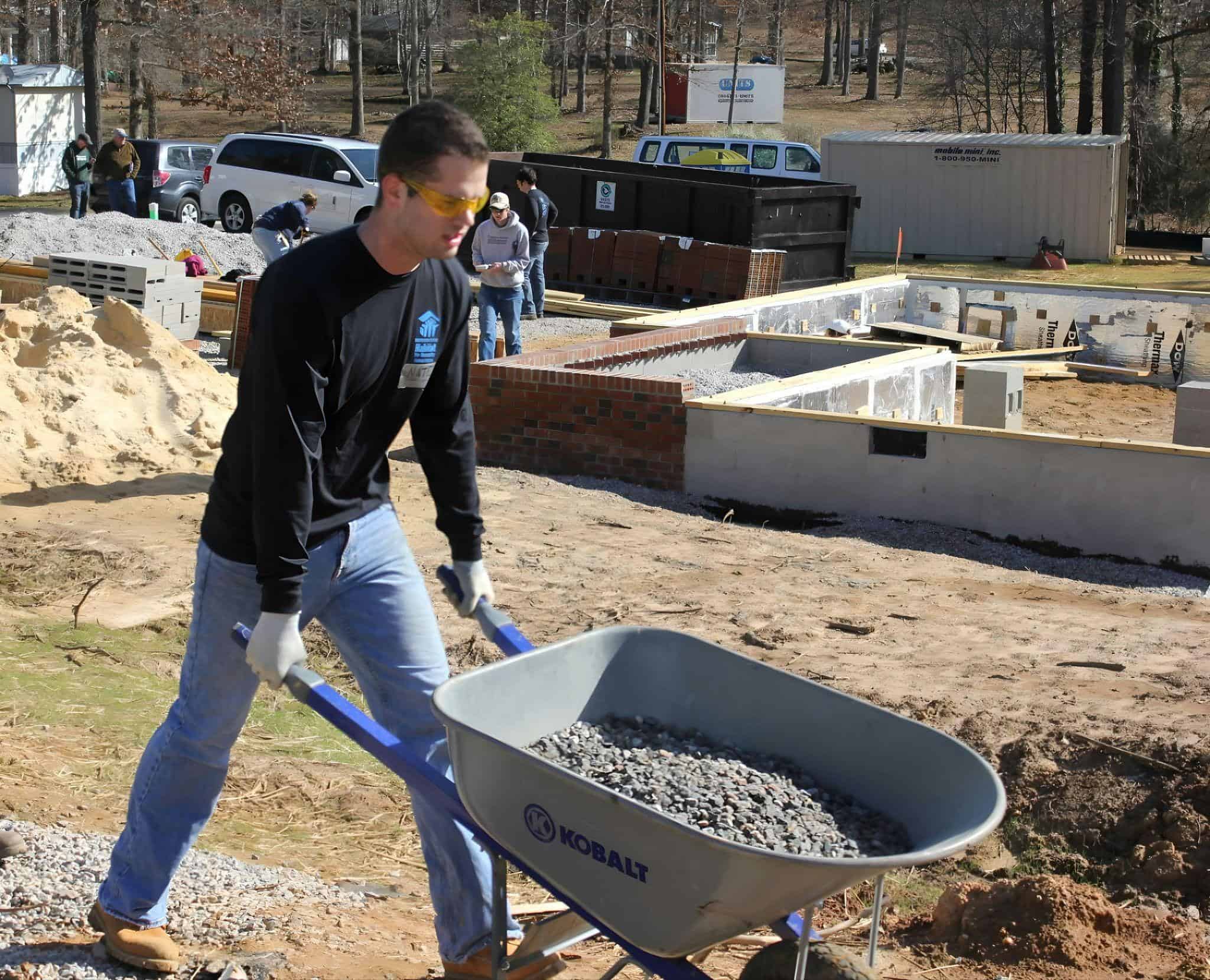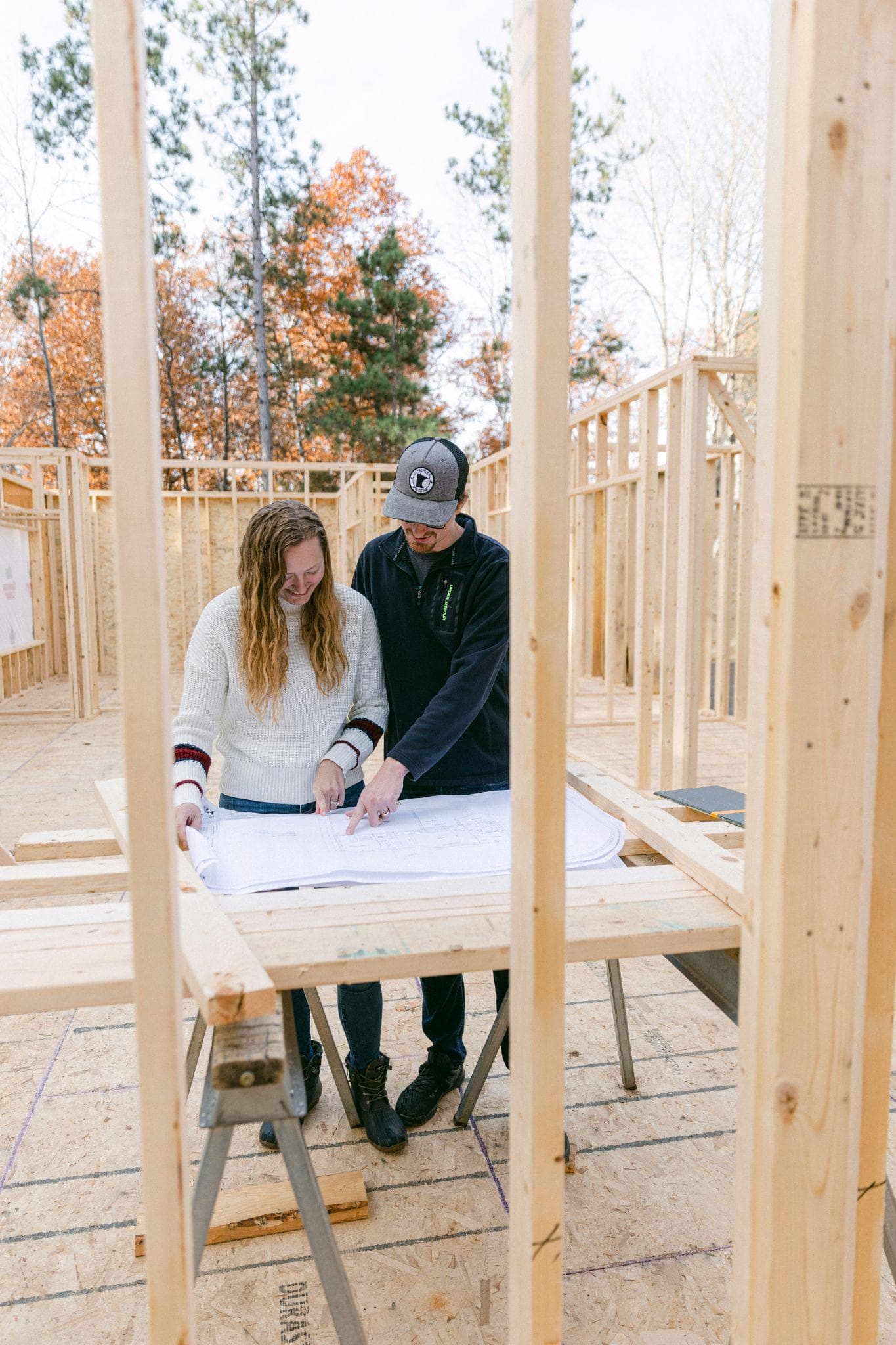
The hardest part of building a custom home in Houston is the uncertainty of what comes next and who to trust with such a massive project.
Ask your friends for recommendations, you hear stories (Some good, some horror). And you spend nights scrolling custom home builder sites, and it all starts blurring together. One promises luxury, another says they’ll finish quicker, but deep down, you know the wrong call would cost serious money and years of frustration.
The stress bites harder than people admit. Budget hanging over your head, approvals dragging, drawings that never feel final. Timelines shift, designs change, and you start second-guessing the whole thing.
But with the right steps (and the right team like Marwood Construction), you can cut through the confusion and actually enjoy the process. Read on to learn everything you’ll need for building a custom home in Houston.
What Should You Research and Plan Before Building a Custom Home in Houston?
Everyone gets itchy to start sketching up floor plans, but if you leg it without preparation, you’ll regret it. This isn’t some weekend renovation. The choices you make at the start ’ll stick with you for years. The house feels right or wrong because of those calls.
Ideas that stick
Grab a notebook and fill it up. Tear sheets from mags, sketches on serviettes, random screenshots saved at 2 am. Doesn’t matter if it looks messy; just spot patterns. That brick detail you saw driving past in Houston traffic, that archway from some holiday rental, whatever grabs you. Collect first, sort later.
Lifestyle, not just looks.
Think of how you actually live. A lot of people coming round for Christmas? Better plan a kitchen and living room that can breathe.
Working from home half the week? A study you can shut off from the chaos. Some homeowners dream of wine cellars, outdoor kitchens, and home cinemas. They do make a place feel properly yours.
Wants vs needs
Needs are what keep the place running smoothly. Bedroom locations, sufficient storage, maybe wider doors if you have older family visiting. Wants are the things you add if the budget allows. Get that balance on paper before sitting with a builder. It’ll save arguments later.
Who’s steering the process?
Research, ask around, and look at past jobs. A proper general contractor (like Marwood Construction) in Houston makes approvals, budgets, and designs all smooth. The wrong one? Endless delays and costs spiraling. Better to spend more time now finding the right crew than cleaning up a mess later.
Just do the homework, line up the right people, and you have half the stress knocked out before a single brick’s laid.
If you need more guidance on finding the right builder, take a look at our general contracting services in Houston.
How Do You Choose the Right Design Team for Your Custom Home?
Picking the team who’ll actually bring the dream into bricks and timber is the toughest and most crucial part of the whole custom home building process.
You’ll be stuck with them for a long time, so better to make sure you can handle each other’s company. You’ll need a builder, an architect or designer, and often an engineer.
Don’t just stare at glossy portfolios. Anyone can cherry-pick their best work. Sit down, talk to them a bit. Ask how they cope when things go wrong. Have a conversation about weather delays, budget issues, and suppliers messing up. That’s the real test. Watch how they react, if they listen, or just bulldoze. You want people who can actually work alongside others without sulking.
Change orders. Conflicts between design and build. Who’s responsible when drawings don’t match what’s possible on site? Do they push blame or find fixes? If they dodge the questions, that’s your red flag. Better to know now than when concrete’s already poured.
Some teams are brilliant on paper, but the chemistry’s off. You’ll know it in your gut. If they’re cagey with information or brush off your worries, imagine months of that. No thanks. Look for open, straight shooters who don’t mind tough chats.
Patrick Martin, our principal, built his name on managing solid teams that pull the rope the same direction. Collaboration, clear communication, and accountability; that’s his thing.
So when storms hit, no one’s pointing fingers. That’s the kind of team you want steering the build.
When Should You Buy a Lot for Your Custom Home in Houston?
Don’t be one of those people who pounce on the first home site they see, heart racing, only to learn later that the deed restriction rules or the finished floor elevation required for the lot turn everything upside down. And don’t be someone who waits too long, blink, and the perfect spot’s gone, either. Timing’s slippery. Depends on your patience, your budget, and what you’re chasing.
If you’re quick on the draw, you can get a lot before it disappears. And that’s handy in a hot market. But then the other shoe drops. Maybe the soil’s tricky, or the deed restrictions mean the dream design’s chopped down. You end up paying through the nose for engineers to fix it. Doesn’t always pan out like you imagined.
On the flip side, you talk to your builder and designer before touching the dirt. Then you have expert eyes scoping setbacks, drainage, tree locations, and weird drainage. They’ll tell you if a lot’s going to cost blood, sweat, and dollars down the line. It’s the safer move.
Every neighborhood in Houston’s has its own rules. Some estates have rules about square footage, rooflines, and even the colours. If you buy blind, you could be stuck with a future home site that boxes you in. It’s better when the design team’s already on board. That helps line things up with your lifestyle (not just what’s available on the day).
How do Houston’s flooding and drainage issues affect custom home sites?
Houston’s flooding and drainage challenges make site selection even more critical, as drainage makes or breaks a lot. A place can look dreamy, with big trees, a wide street, but if it’s sitting in a floodplain or area prone to flooding, you’ll have to spend more on elevating the building or creating rain retention (more concrete, and bigger insurance bills). Resale takes a hit, too.
Pull up FEMA flood maps. Ask your builder and your engineer. City of Houston’s Floodplain Management Office has the details, permits, and drainage plans, all the things that save you grief later.
What Does It Cost to Build a Custom Home in Houston?
Every little choice you make changes the tally. Flooring here, fixtures there, the number starts looking nothing like the one in your head. That’s what makes early planning so important, or at least keeps you braced for the blow.
The building site itself is the first big piece. Premium sites in central Houston or master-planned suburbs command much higher prices than land further out. But then you have longer drives and maybe fewer amenities. And buying the home site isn’t the end of it.
Clearing scrub, tree removal, grading, site prep, things no one shows you in glossy brochures, all of it hits the wallet.
And when you hire an architect or a clever designer, they capture your dream, but every curve in the roofline, every tricky structural bit, these things will cost you more. Plus, engineers never come cheap.
Stick to basic materials and finishes, and costs stay friendly. But once you start eyeing off imported stone and bespoke cabinetry, yes, the budget just blows. A smaller place kitted out with top-end can sting way more per square foot than a big basic build.
How much does it cost to build a custom home in Houston, TX?
Ballpark, you’re looking at around $180 to $280 a foot for a standard setup in Houston. Go all in with high end custom finishes, you’re more in the $280 to $400 plus range. So yes, $280,000 on the low side could be pushing close to $900,000 if you go big, and that’s before even counting the land and development cost.
And Houston folk love their outdoor kitchens, pools, and properly landscaped yards. None of that’s included in those neat figures. It costs more (sometimes a lot more), but for many, it feels like part of the lifestyle, so they stretch it.
The best move is to sit down with your builder early and keep the conversation honest. Numbers only stay clear if you know what you’re signing up for. Otherwise…easy to get lost.
What Is the Step-by-Step Process for Building a Custom Home in Houston?
People assume it’s just bricks and mortar, but no, there are layers. Houston’s got its quirks, too: weather, floods, councils, etc. Luxury homes make it even trickier. Anyway, here’s a practical, start-to-finish checklist so you know what happens, when, and why
Step 1: How Do You Clarify Your Goals, Budget, and Timeline?
Sit down with a coffee, pen, and a notebook. What do you actually want? Bedrooms, bathrooms, yes, but also the feel of it. Like, do you want space for watching baseball on TV with your friends or a quiet study tucked away?
One floor if you don’t want stairs, or a second story. Some think of future kids, others about aging parents.
Houston’s costs per square foot varies dramatically, so instead of one fixed number, set a realistic range that allows some flexibility. Don’t lie to yourself, as it’ll bite you later. Circle a move-in date on the calendar, see if it’s even doable when you drag the timeline back.
Start clipping pics, too. Doesn’t matter if it’s Houzz or a random shot from a friend’s renovation. Builders need that folder of dreams; otherwise, it’s just vague chat.
Step 2: When Should You Engage a Master Builder and Architect?
The earlier the better. The builder, the architect, they’re your team. Pick ones who’ve actually survived Houston jobs (and came on top), not just glossy websites. Marwood Construction has been around for many decades. Sit across the table, see if you click.
Equally important is agreeing on the building delivery method—design-bid-build versus design-build—and establishing a clear rhythm of communication. Ask upfront about change-order policies, how they’ll be priced, and escalation paths if issues arise.
Step 3: How Do You Evaluate and Select the Right Homesite?
The lot sets the stage for everything. Wrong lot, and you’re done before you start. HOAs love their rules, and Houston’s full of them. Review deed restrictions, easements, and setbacks.
Because Houston is prone to flooding, site evaluation must include floodplain checks and drainage context. Your builder should outline a preliminary elevation strategy to mitigate risk and meet FEMA or city guidelines.
Position the home to optimize sun, shade, and prevailing wind to improve energy efficiency and privacy.
Step 4: What Due Diligence Reduces Risk Before You Commit?
Don’t sign anything till the reports are in. Survey, soils, and site plan. HOAs again, they’ll have opinions on roof pitches, architectural features and paint colors, and they’ll fine you if you ignore them.
Builders worth their salt do feasibility checks. Is the soil unstable? You’ll be paying for a deep foundation. Big oak tree on the lot? The HOA might tell you to redesign around it.
Step 5: How Do Concept Design and Preliminary Pricing Work?
Working with your architect, you’ll develop massing studies and floor plans, identifying priority spaces and adjacencies.
Your builder prepares pre-construction pricing target budget. Instead of hard bids, you’ll receive allowances for selections like flooring, plumbing fixtures, and cabinetry. Then you decide between what you want and what you can actually afford.
Step 6: What Houston Permits and Approvals Will You Need?
City of Houston wants building permits, trade permits, driveway permits, etc. For some blocks, you’ll need to get tree removal approvals, grading, and floodplain permits.There may also be city engineering impact fees.
Builders and architects usually manage it (submittals, reviews, inspectors, etc.). One missing paper and you’re weeks behind. Certain jobs even need third-party verifications. If your builder’s not organised, this stage drags on forever.
Step 7: How Do You Finalize Working Drawings and Selections?
All the things you and your spouse argued over (windows, doors, roofs, bricks, taps, appliances, for example) in the dream folder now get locked in. No more allowances, as it’s actual numbers now.
The architect pulls together working drawings and proper roadmaps for the tradies. Schedules get built, too. Lead times are killers, like if your custom windows take 14 weeks. Blow one special order, delay the entire project This is where the home shifts from idea to something solid.
Step 8: How Is Financing and Contracting Structured?
You don’t get the whole bucket of cash at once. These lenders release funds in draws tied to progress milestones, with inspections verifying completion. The builder produces a stage, the inspector confirms, and then the bank pays. Keeps everyone honest.
Contracts get signed now. The owner–builder agreement lays out the scope, inclusions, and exclusions. Insurance responsibilities must also be defined: builder’s risk, liability, and property cover. Tick them off so you’re not at risk if something goes wrong.
Step 9: What Are the Major Construction Milestones?
Houston’s new home construction begins with site preparation, grading, and formwork, followed by pouring the foundation. Next, framing goes up. And now it looks like a house, even if it’s just skeleton timber.
Plumbing, electrical, and mechanical rough-ins come next. Then the roof and windows, and you have a dry shell. After that, insulation and drywall make it look less like a barn.
Exterior cladding, interior trims, cabinets, and tile work follow. Paint goes on, flooring, lights, and taps are installed. Slowly it becomes a place you can picture living in. Landscaping, driveway, paths, and the last bits of polish complete the exterior.
Step 10: How Do Quality Control and Inspections Work?
Houston city inspectors show up at certain stages. Foundations, framing, plumbing, and electrical systems get checked. Permits demand it.
Good builders don’t just rely on the city. They do their own quality walks. Take photos, log issues, and fix them before they snowball. Owners are typically included in scheduled progress meetings, with action logs and two-week look-ahead schedules.
Step 11: What Happens at Punch List, Orientation, and Close-Out?
Near the end, you do the blue tape walk. Stick tape on every ding, scratch, crooked line. The luxury home builder makes a punch list out of it and completes modifications before handover.
Then orientation. They show you how the HVAC runs, how the smart home devices work, irrigation timers, all that. You get a fat folder of manuals, warranties, and keys. Final lien releases, so no tradie comes chasing later.
Step 12: What Warranties and Post-Move-In Support Are Included?
Texas makes builders warranties cover workmanship, systems, and structure.
Post-move-in, expect 30- and 90-day tune-ups, followed by a one-year review. You’ll also receive a maintenance schedule and access to preferred trades for long-term care. The relationship doesn’t end when you get the keys (especially when working with Marwood Construction). We’ll support your investment well into the future.
FAQs About Building a Custom Home in Houston
How long does it take to build a custom home in Houston?
Most luxury custom homes in Houston take 12 to 18 months from design through completion. It really depends on complexity, permitting, and weather conditions. Larger estates or highly customized builds extend beyond that timeframe.
Do I need to buy land before hiring a builder?
Not necessarily. It’s better to involve your builder before purchasing a lot. An experienced builder evaluates deed restrictions, setbacks, utilities, and drainage. That way, you’ll be avoiding costly mistakes tied to Houston’s unique site conditions.
Can I bring my own architect or designer?
Yes. You can bring your own architect or interior designer, though many builders prefer working with proven design partners. A strong collaboration means your vision, budget, and technical execution all align.
What warranties are provided with a custom home in Houston?
Texas law requires minimum workmanship, systems, and structural warranties. Builders like Marwood Construction provide enhanced warranty coverage, plus 30/90-day tune-ups and long-term support.
Wrapping Up: Building a Custom Home in Houston
With the right preparation and the right team, building a Custom Home in Houston feels less like a gamble…more like a process you actually want.
A builder who knows Houston, the rules, and the quirks keeps the whole process steady for you.
At Marwood Construction, it’s clarity, proper accountability, and solid craft. We help turn rough ideas into homes that last for generations and surpass your expectations while we’re at it.
Ready to build a custom home in Houston? Contact Marwood Construction today and start building.








